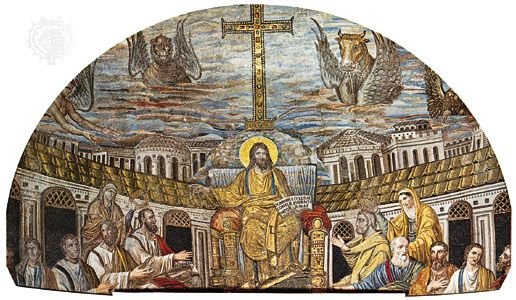Dream catchers are objects believed to filter out bad dreams and allow good dreams to pass through. They are often associated with Native American spiritual beliefs and practices. However, for many Christians, the use of dream catchers raises questions about their compatibility with biblical teachings and whether they have any significant place in Christian beliefs.
In this section, we will explore the biblical perspective on dream catchers and their significance in relation to Christian beliefs. We will examine if dream catchers have any mention or significance in the Bible and how they align with Christian teachings. We will also discuss the importance of dreams in the Christian faith and the biblical understanding of their interpretation.
Key Takeaways:
- Dream catchers are objects commonly associated with Native American spiritual beliefs.
- Many Christians question the compatibility of dream catchers with biblical teachings.
- We will explore if dream catchers have any significance in the Bible and how they align with Christian teachings.
- We will examine the importance of dreams in the Christian faith and the biblical understanding of their interpretation.
- The use of discernment and prayer when interpreting dreams is emphasized in biblical teachings.
Table of Contents
Understanding Dreams in the Bible
Dreams have always been a subject of fascination and intrigue to people across different cultures and spiritual beliefs. In the Bible, dreams played a significant role in communicating God’s messages and revealing his plans to his people. The Bible recounts several prophetic dreams that were instrumental in shaping the lives of many biblical figures, such as Joseph, Daniel, and Jacob.
The interpretation of dreams in the Bible is an important topic that has fascinated scholars and believers for centuries. Dreams were considered to be ways in which God communicated with his people and conveyed important messages. Christians believe that through dreams, God still speaks to his faithful followers in the present day.
The Importance of Dreams in the Christian Faith
The Bible teaches that dreams have an important spiritual significance and that they can provide guidance, insight, and direction to those who seek it from God. In the book of Joel, it is written that in the last days, God will pour out his spirit on all people, and both men and women will prophesy, have visions, and dream dreams.
Christians consider dreams to be a spiritually significant experience that they should pay close attention to. Dreams have helped many believers gain clarity and insight into their lives and given them the strength to overcome challenges and obstacles.
The Biblical Interpretation of Dreams
The Bible provides us with examples and principles that help us interpret dreams from a biblical perspective. In the book of Genesis, Joseph was known for his ability to interpret dreams, and he used his gift of interpretation to help Pharaoh interpret his dreams and prepare for the famine that was coming.
The Bible also teaches that not all dreams have spiritual significance and that some dreams can simply be a result of everyday experiences and thoughts. Therefore, Christians are encouraged to seek discernment and guidance from God to determine the true meaning of their dreams.
The Importance of Biblical Dream Interpretation
Interpreting dreams from a biblical perspective is crucial for Christians as it can provide guidance and direction from God. Dreams can often reveal hidden messages and help believers recognize areas that need attention in their lives.
By understanding the principles of biblical dream interpretation, Christians can develop a deeper spiritual connection with God and seek his guidance for their lives.
Biblical Symbols and Dream Interpretation
Dreams have long been considered a source of divine guidance and communication in many spiritual beliefs, and the Bible is no exception. Dreams in the Bible are often rich with symbolism, offering insight into the spiritual realm and the deeper meanings of our experiences.
One famous example is the story of Joseph, who interprets the Pharaoh’s dream of seven fat cows and seven skinny cows as a warning of a coming famine. The cows represent the years of plenty and the years of famine, respectively, highlighting the significance of food scarcity and economic instability.

Other common symbols in the Bible include flying birds, which often represent spiritual freedom and escape from danger, and the sun and moon, which represent power and authority. Dreams of falling teeth are also prevalent and typically symbolize feelings of vulnerability and powerlessness.
Interpreting dreams in the Bible requires a deep understanding of the cultural and historical context of the time, as well as a reliance on divine guidance and discernment. Christians are encouraged to pray for guidance and seek spiritual wisdom when interpreting their dreams, trusting in the wisdom of God and the power of the Holy Spirit.
The Origin and Meaning of Dream Catchers
Dream catchers have become popular worldwide for their perceived ability to filter out bad dreams and allow good dreams to pass through. But where did they originate, and what is their meaning? Dream catchers were first created by Native Americans, specifically the Ojibwe tribe, who believed they could keep people safe from bad dreams. The Ojibwe people passed the tradition of making dream catchers down through generations, and over time, other Native American tribes started to make them too.
The design of a dream catcher consists of a hoop made out of natural materials, like willow wood, and a woven web inside the hoop. The web is meant to catch bad dreams and allow good dreams to pass through. Feathers and beads are typically attached to the bottom of the dream catcher as a decoration and to further represent the meaning of the dream catcher.
In modern times, dream catchers have been adopted by people of all cultures and religions, including Christians. While there is no specific mention of dream catchers in the Bible, some Christians may choose to use them as a tool for dream interpretation. However, others may see dream catchers as conflicting with Christian beliefs, which emphasize relying on prayer and discernment for guidance rather than external objects.
Dream Catchers and Christian Beliefs
Many Christians question whether dream catchers align with their faith and whether they can use them as tools for interpreting dreams. While some Christians view dream catchers as symbols with the power to filter out bad dreams and promote good ones, others view them as a pagan practice with no place in Christian belief.
Although dream catchers are not directly referenced in the Bible, dreams and their interpretation are significant in the Christian faith. The Bible provides a wealth of information on dream symbolism, and many Christians rely on biblical principles to interpret dreams.
Some Christians believe that using dream catchers goes against biblical teachings and that they should seek spiritual discernment through prayer rather than relying on external objects. Others see no issue with using dream catchers as an aid in their dream interpretation, as long as they do not replace God’s guidance.
Ultimately, the decision to use a dream catcher lies with each individual’s personal beliefs and their relationship with God. As with all aspects of faith, Christians are encouraged to seek God’s guidance and rely on biblical teachings for discernment.
| Pros | Cons |
|---|---|
| Can be used as a symbol of hope and protection | Some Christians view them as a pagan practice |
| Can serve as a reminder of the importance of dreams and their interpretation | Some believe they go against biblical teachings |
| Can aid in the dream interpretation process | Some see them as a potential distraction from seeking God’s guidance |
Discernment and Prayer in Dream Interpretation
According to biblical teachings, interpreting dreams requires discernment and prayer. Christians are encouraged to seek spiritual guidance from God rather than relying solely on external objects like dream catchers. By praying for clarity and guidance, individuals can receive deeper insights into the messages conveyed through their dreams.
The Bible offers several examples of individuals relying on God for interpretation, such as in the story of Joseph in Genesis 41. Joseph interpreted Pharaoh’s dreams through the guidance of God, recognizing their prophetic significance. Similarly, in Daniel 2, Daniel’s prophetic ability to interpret Nebuchadnezzar’s dream came from God, not from any physical object or external source.
Therefore, Christians should be mindful of discernment when seeking to understand the meaning of their dreams. Interpretation can be assisted by studying biblical symbols and themes, adhering to biblical teachings, and receiving spiritual guidance from God, as emphasized in Proverbs 2:6-7. By putting faith in God and developing discernment through prayer, Christians can gain a deeper understanding of the messages conveyed in their dreams.
Biblical Approaches to Dream Interpretation
In the Bible, dreams and their interpretation often had significant implications on individuals and their communities. While some dreams had specific meanings, others required interpretation to understand their intended message. Several approaches were used to interpret dreams in the Bible, with some relying on divine revelation while others employed symbolism and personal experience.
One example of a biblical figure who relied heavily on divine guidance for dream interpretation is Joseph, son of Jacob. Joseph had prophetic dreams that showed he would one day have authority over his family, but it was his interpretation of Pharaoh’s dreams that elevated his status and saved his people from famine.
Another approach to dream interpretation used in the Bible is the use of symbolism. Dreams often included symbolism that required interpretation to discern their meaning. For example, in the book of Daniel, the prophet interprets King Nebuchadnezzar’s dream, which involves a statue with different body parts made of various materials. Daniel uses this symbolism to reveal to the king the rise and fall of various kingdoms.
Additionally, biblical approaches to dream interpretation emphasized the importance of seeking spiritual discernment and guidance. Christians are encouraged to pray for wisdom and understanding when interpreting dreams, rather than relying solely on external objects or personal opinions.
Overall, the Bible provides numerous examples of dreams and their interpretations, highlighting the importance of relying on God’s guidance and employing various approaches, including divine revelation, symbolism, and spiritual discernment.
Conclusion
Throughout this article, we have explored the biblical perspective on dream catchers and their place within Christian belief. While dream catchers are not explicitly mentioned in the Bible, we can draw insights from its teachings on dreams and spiritual discernment.
As we have seen, dreams in the Bible were seen as a way of communication between God and His people. Dreams were often interpreted through symbols and held significant meaning. While dream catchers may be seen as an external tool for dream interpretation, as Christians, we are encouraged to rely on God’s guidance and seek spiritual discernment.
Ultimately, the Bible provides insights and guidance on the interpretation of dreams. While dream catchers may have cultural significance and meaning, their place within Christian belief may vary. As with all aspects of our faith, we are encouraged to seek guidance and wisdom through prayer and discernment.
By keeping an open mind and relying on God’s guidance, we can better understand the significance of dreams and their role within our faith. The Bible provides a wealth of wisdom and guidance on dream interpretation, helping us to discern God’s messages and receive spiritual clarity.
FAQ
What does the Bible say about dream catchers?
Dream catchers are not specifically mentioned or addressed in the Bible. The Bible primarily focuses on the interpretation and significance of dreams rather than the use of specific objects like dream catchers for dream interpretation.
How are dreams interpreted in the Bible?
In the Bible, dreams are often interpreted as messages from God. They may contain symbolic meanings that require interpretation to discern their true significance. Various biblical figures, such as Joseph and Daniel, were known for their abilities to interpret dreams.
Are there symbolic meanings in dreams according to the Bible?
Yes, the Bible contains instances where dreams are filled with symbolic imagery. These symbols often carry deeper spiritual or prophetic meanings. Dreams of symbols such as animals, objects, or events require interpretation to unlock their intended message.
What is the origin and meaning of dream catchers?
Dream catchers originated from Native American cultures, particularly the Ojibwe people. They are believed to filter out bad dreams and let good dreams pass through. Dream catchers are often seen as symbols of protection and guidance.
How do dream catchers align with Christian beliefs?
Views within the Christian community vary. Some Christians may see dream catchers as cultural artifacts, appreciating their symbolic meaning but not attributing spiritual significance to them. Others may consider dream catchers as contradicting biblical belief in seeking guidance and discernment directly from God.
How should Christians approach dream interpretation?
Christians are encouraged to rely on discernment and prayer when interpreting dreams. The Bible emphasizes seeking wisdom from God and the Holy Spirit for understanding dreams rather than relying solely on external objects or symbols like dream catchers.
What approaches to dream interpretation can be found in the Bible?
The Bible provides examples of different approaches to dream interpretation. Some involve seeking divine interpretation through prophets or wise individuals like Joseph or Daniel. Others emphasize relying on God’s personal revelation and guidance when discerning the messages within dreams.

Rockin’ the faith, one verse at a time!
Growing up, the Bible’s stories deeply impacted me. Now, with over 15 years of preaching experience, I blend timeless teachings with modern technology, making them relevant for today’s world.
Bible Hub Verse is my platform to share historical insights and thought-provoking articles, exploring both familiar and uncommon Christian topics. My passion is building a welcoming online space for everyone to learn, grow in their faith, and discover the Bible’s enduring message.
Join the journey!
God bless you.






